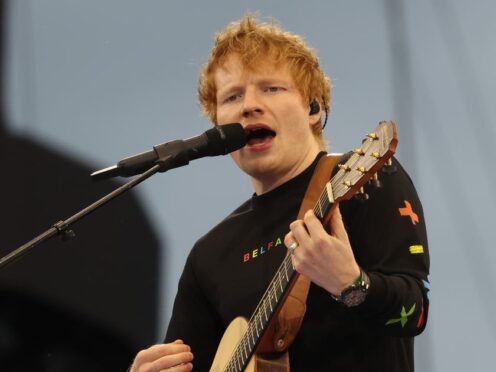UK Music has urged the Government to take action to protect the music industry from an “economic storm” as it continues to recover from damage caused by the coronavirus crisis.
The organisation, which represents the collective interests of the production side of the UK’s commercial music, said the sector had experienced a “fragile recovery” as it revealed the industry was still significantly behind in some areas, including employment, compared with before the pandemic.
Bosses said the annual report showed the urgent need for support from new Prime Minister Liz Truss to reduce the tax burden on the music industry, incentivise investment and help boost exports.
The 2022 This Is Music report is based on data collated from across the music industry in 2021.

Key findings include that the UK music industry’s contribution to the UK economy in 2021 was £4 billion, up 26% on £3.1 billion in 2020, but still down 31% on the pre-Covid all-time high of £5.8 billion in 2019.
Likewise, employment in the music industry rose to 145,000 jobs in 2021, up 14% on 128,000 jobs in 2020, but down 26% on the pre-Covid record of 197,000 jobs in 2019.
Exports in the sector also rose in 2021 to £2.5 billion, up 10% on the £2.3 billion figure in 2020, but still down 15% on £2.9 billion in 2019.
Despite the ongoing recovery, the report also highlighted British musical success stories from last year.
In 2021 the biggest selling album in the world was Adele’s highly-anticipated 30, with Ed Sheeran’s = the fourth best-selling, and Dua Lipa’s Future Nostalgia in sixth place.
UK Music chief executive Jamie Njoku-Goodwin said the music industry still faces a “major threat from strong economic headwinds”.
“The UK music industry is working hard to recover after the catastrophic impact of Covid, but there is still some way to go to restore the jobs and growth lost during the pandemic,” he said.
“Our sector still faces a serious threat from the economic storm that could blow our fragile recovery off course without urgent Government support.
“It’s vital that Government acts to protect and support a sector that creates jobs, contributes to the economy and matters to millions of people across our country.
“The new Prime Minister has said she wants to cut taxes to stimulate growth.
“If she is serious about this, then she should use the emergency budget to reduce the tax burden on the music industry, for instance by extending the hugely successful creative industry tax reliefs to the music industry.
“This would incentivise investment and boost exports of British music, which are at risk due to increasing international competition and issues following the UK’s exit from the European Union.”
Mr Njoku-Goodwin also highlighted the urgent action needed to support businesses facing increased energy bills, as well as further steps to protect intellectual property rights for artists.
He said proposals made previously to allow AI companies a copyright exception for text and data mining were “an existential threat to our sector and must be stopped”.
“As we showed before the pandemic, the UK music industry can be world leading,” he said.
“But without help from new Prime Minister Liz Truss and her ministerial team, there is the deeply worrying prospect that the billions spent supporting music businesses and cultural institutions during the lockdowns will be wasted.
“We cannot allow that to happen.”
